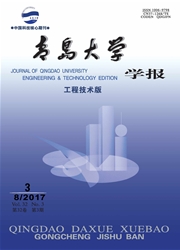

 中文摘要:
中文摘要:
供应链协同领域现有的研究主要以市场成熟的产品为研究对象,建立的模型及所用的方法并不适合考察市场不成熟的新产品。为考察特定新产品供应链的协同特点,并寻求其成员制定决策的合理方法,以一个供应商和一个零售商构成的一类新产品的两阶段供应链系统为研究对象,在需求信息不完全的条件下,建立了供应商为风险中性、零售商为风险厌恶以及供应商、零售商均为风险厌恶的两类模型,并分别分析了传统的回购契约对两类模型中新产品供应链的影响。发现传统的回购契约并不能协调第一类模型中的新产品供应链,但在一定的条件下可以使第二类模型中的新产品供应链达到协同状态。该结果对新产品供应链成员的决策制定具有一定的指导意义。
 英文摘要:
英文摘要:
Researches existed in supply chain coordination mainly focus on products with a mature market which is rich in demand information,however its model and approach can not properly work under a new product circumstance.Our aim is to investigate the coordination feature and proper research approach of new products supply chain.With a one-supplier-one-retailer supply chain of certain new products,two models with partial demand information are constructed,one of which consists of a risk neutral supplier and a risk averse retailer,while members of the other model are both risk averse.Besides,the effect of traditional buy back policy on new product supply chain is studied,indicating that traditional buy back policy can't coordinate the chain in the first model,yet does coordinate the one in the second model under certain circumstances.This result is expected to help the decision-making of new products supply chain members.
 同期刊论文项目
同期刊论文项目
 同项目期刊论文
同项目期刊论文
 期刊信息
期刊信息
